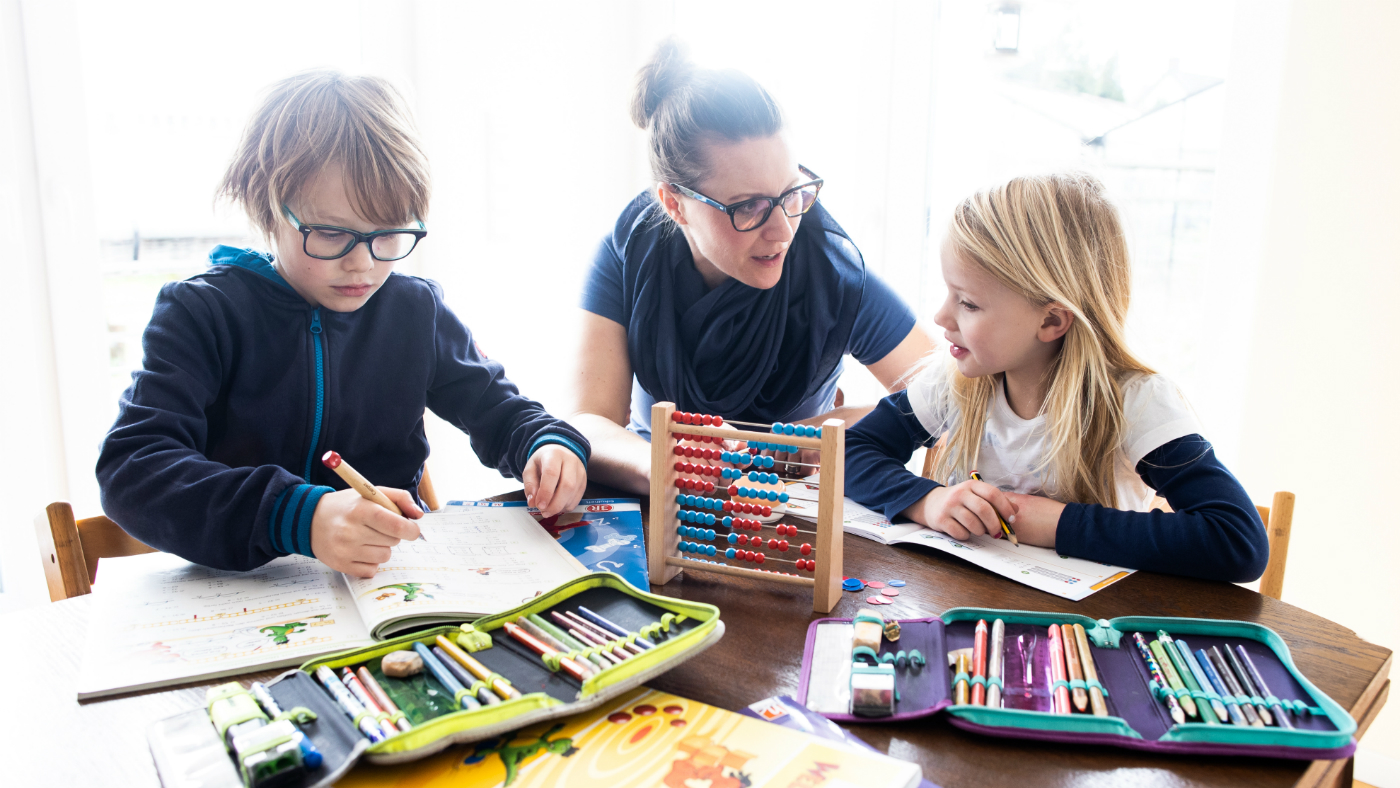Coronavirus school closures: tips to keep kids busy at home
Parents will need ways to keep their children learning, happy and healthy

A free daily email with the biggest news stories of the day – and the best features from TheWeek.com
You are now subscribed
Your newsletter sign-up was successful
Nationwide school closures in response to the coronavirus pandemic have left parents in the UK and many other countries facing the challenge of both educating and entertaining their children at home.
That task is likely to prove particularly challenging for parents who are also working remotely as part of social distancing measures aimed at curbing the global outbreak.
But as the BBC notes, it’s not all sunshine and roses for the kids either. “Millions of children will be looking forward to a spring, and possibly a summer, free of responsibility and routine,” the broadcaster says.
The Week
Escape your echo chamber. Get the facts behind the news, plus analysis from multiple perspectives.

Sign up for The Week's Free Newsletters
From our morning news briefing to a weekly Good News Newsletter, get the best of The Week delivered directly to your inbox.
From our morning news briefing to a weekly Good News Newsletter, get the best of The Week delivered directly to your inbox.
“But these are not normal times - they’re likely to have to spend days and nights indoors with parents or guardians. They won't get much personal contact with friends and, for teenagers, the cancellation of exams will make a difficult time of year even more worrying.”
So what can adults do to keep their children happy, healthy and well educated until schools open their doors again?
Learning to teach
Perhaps the most important thing parents can do for their children is to maintain their education while schools are closed.
A free daily email with the biggest news stories of the day – and the best features from TheWeek.com
Offering their top tips on the Sky News site, qualified teachers and sports coaches Tom Rose and Jack Pannett recommend: “If you’re not a teacher by trade, give yourself some realistic goals - trying to conquer the whole curriculum is probably going to make you and your child anxious (especially if you’re juggling your work and this new teaching role). Prioritise the core curriculum - maths and English.”
As the duo note, there are many ways “to cover the rest of the curriculum and you can get creative with these - for example, watching Horrible Histories or Blue Planet is a great way to cover some of the humanities. And don’t worry, Ofsted won’t be calling anytime soon.”
However parents set about tackling the teaching challenge, maintaining some sort of daily timetable is important as well.
Sam Cartwright-Hatton, professor of clinical child psychology at the University of Sussex, “advocates setting a clear routine, particularly for younger children - such as a couple of hours of school work in the morning or a specified time for craft work in the afternoon”, says the BBC.
–––––––––––––––––––––––––––––––For a round-up of the most important stories from around the world - and a concise, refreshing and balanced take on the week’s news agenda - try The Week magazine. Start your trial subscription today–––––––––––––––––––––––––––––––
Take time for life skills too
CBS News suggests that this may be a “good time to teach them skills that will last a lifetime, like chores”.
“All it takes is a half hour a day to teach kids basic responsibilities and skills, and you can make it fun with rewards,” says the broadcaster, which notes that such activities could include learning how to cook or clean.
The New York Post says “experts agree that helping around the house earlier in the day helps remind teens and kids that they’re an important part of their family units”.
Exercise
Cardiff-based fitness expert Keris Hopkins recommends that both adults and children do regular exercise together at home while in self-isolation.
“There are tonnes of things you can do from your chair or sofa - squats, tricep dips, crunches, body work exercises and so on,” she told the BBC. “If you have kids at home, you can get them involved. Make activities fun, like running around or playing hide and seek. Just keep moving.”
Experts are also advising families to exercise outside whenever possible during the crisis.
“A balance has to be struck between mental and physical health, depending on what the next piece of official information is,” says Eva Lloyd, professor of early childhood at the University of East London.
“If it’s safe to go the park, people should do that too.”
Unwind
Parents may benefit from “finding new methods of relaxation such as deep breathing, mindfulness or meditation”, says Forbes.
“As well as being great ways of calming the mind and relieving stress, they are all activities children can get involved in too,” the site adds.
Sports coaches Rose and Pannett say that along with meditation and breathing exercises, keeping a journal can also “be very useful for reducing stress”.
“These steps have really helped us to maximise our teaching ability and stay positive when times are tough,” they continue. “Remember: you can’t pour from an empty cup.”
Get creative
Rather than letting kids slump in front of a screen during their spare time at home, encourage them to try more artistic, creative activities.
“Painting? Drawing? Colouring? All of these are options if you buy the right supples,” says Utah-based newspaper Deseret News. “Art supplies will help children and parents work together for fun.
“Like picture books, art work requires focus and concentration, too. While your child is out of school, this will certainly help them stay energised and educated.”